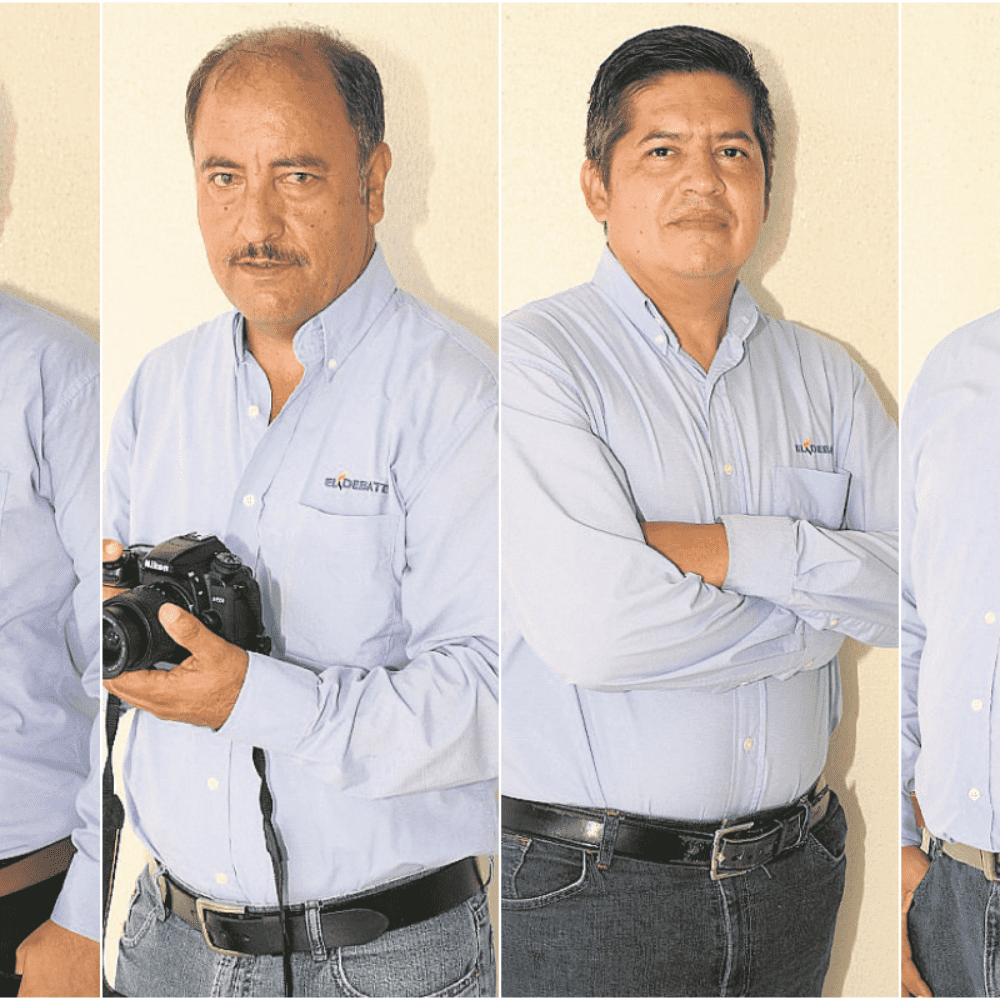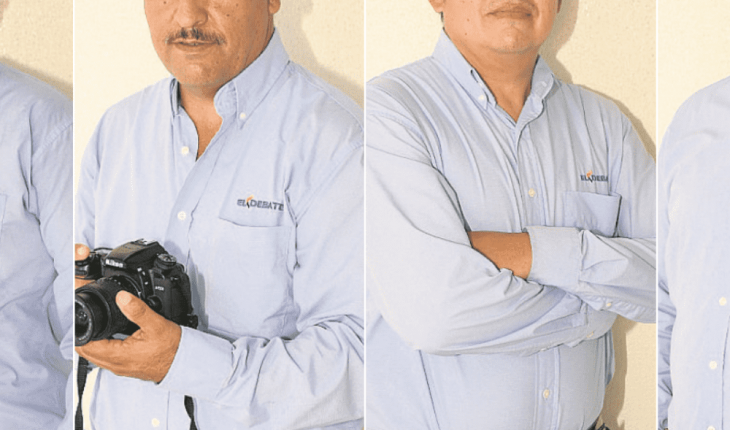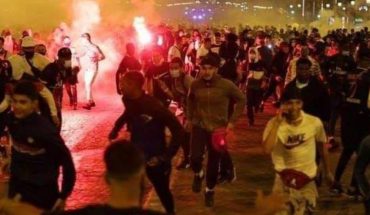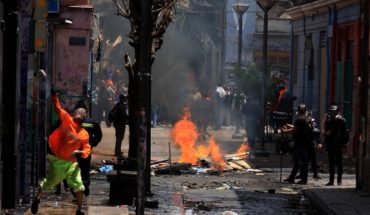
Sinaloa.- Yesterday was held the virtual award ceremony of the 2020 Journalistic Excellence Award of the Inter-American Press Society (SIP) in the category of news coverage, of which journalists of El Debate were winners. Ramón Verdín participated in an international panel representing the team of journalists who covered the work called “Mormon Tragedy”, on the violent events in which eleven members of the LeBaron and Langford families died.
Stay informed about what matters most to you
Get the most relevant news of the day in your e-mail
Thank you for subscribing!
Check your inbox to confirm your email and start getting the latest news
Take advantage and take the next step
Get our news alerts so you don’t miss anything
Receive notifications
Not bad! You’ve subscribed to notifications
Set up and choose your preferences
Set up notifications
Enter your e-mail
Subscribe
Subscribing involves accepting the terms and conditions
Not bad! You’ve subscribed to notifications
Set up and choose your preferences
During the inauguration, the Executive Director of the IAPA, Ricardo Trotti, noted that it was a great pleasure to inaugurate this general assembly of the IAPA, with something that honors it and for what it is always willing to do: talk about the contents, but above all the quality of the information.
Virtual award ceremony
Trotti thanked Leonor Mulero Pagán, chairwoman of the Awards Committee, in her message, who had a huge job with the jury on the basis of more than 1050 nominations this year. Christopher Barnes, president of the IAPA, welcomed the virtual ceremony and expressed that they would celebrate the work of journalists throughout the hemisphere, who have done a great job: “This year is very special for us, because like we have all had to deal with the impact of coronavirus on all our operations, and still produce quality and credibility news content , which audiences can trust.” Barnes also commented that this is an opportunity to celebrate all the jobs they contained, but at the same time honor journalists who have died for their commitment to the so-called journalist, who have been awarded the 2020 Press Freedom Grand Prix.SIP 2020 Winners Panels
Dominican journalist Nuria Peira moderated the third panel of exhibitors and winners of the award in journalism and social denunciation, in which Ramón Felipe Verdín Flores, journalist of El Debate, Los Mochis, Sinaloa, Mexico (winner of News Coverage with “Mormon Tragedy” participated); Clavel Rangel, journalist from La Vida de Nos, Caracas, Venezuela (winner of Human Rights and Community Service for “Pits of Silence”); and Alentine Oropeza, journalist from Prodavinci, Caracas, Venezuela (winner in Health for “Malaria Times in Venezuela”). As part of this ceremony, details could be made known in the development of journalistic works that led journalism professionals to gain the distinction to journalistic excellence this 2020. “Mormon tragedy”
For Ramón Verdín Flores, this coverage, which he made as a member of the El Debate Newspaper Research Unit, with all the pain it meant for the LeBaron and Langford families, was a journalistic fact that cemented Mexico and the United States and served to make visible the violence that is lived in the north of the country. On 4 November 2019, a group of women, boys and girls, members of the LeBaron family at the hands of criminal groups, was massacred. Three mothers of family and their fourteen children of Mexican-American origin and Mormon religion traveled in three vans in the vicinity of the community La Mora, municipality of Bavispe, at the northeast end of the state of Sonora, very close to the border of Chihuahua, when they were ambushed. The coverage of these tragic events by el Debate’s team of communication professionals deserved the international distinction and recognition that the granting agency founded on the offer that journalists made through the combination of various genres and journalistic resources, as well as a brilliant coverage of the attack of drug groups on Mormon families based in northern Mexico , which cost the lives of at least eleven people.” Pits of Silence”
On the same panel, Venezuelan journalist Clavel Rangel narrated the work that earned the distinction to journalistic excellence, in which she takes the life of a photographer who goes to a mine and disappears, just as dozens of People. He explained that mines in southern Venezuela, specifically in Bolivar state or the Venezuelan Amazon, began to be a place of migration in principle internally, by a mixture of three factors: the economic hyperinflation that happened in Venezuela; political and institutional crisis, and in turn the demonopolization of violence in the country, which caused these territories to be controlled, specifically these mines, by irregular armed groups from 2015, Rangel said. After 2016 many Venezuelans engaged in mining activity in search of gold; however, it proved a breeding ground for groups of criminals who tried to control these mining territories. In the words of the journalist, 16 miners disappeared in the year. He said that more than eleven massacres have occurred and that if at the time of submitting the work for the contest there were 39 people missing, today there are 77 cases of missing persons, which is also a sub-registration, he considered Clavel Rangel. “Malaria times in Venezuela”
The health problem that Valentina Oropeza narrated prevails in the south of the country, in Guiana, amid the same violent climate that Clavel Rangel previously described. This work, which also gained recognition for journalistic excellence, began with an interview with the physician responsible for the Center for Malaria Studies in Caracas. Venezuelan journalist Valentina Oropeza said that what would initially be just an interview made her warn that there was a huge story to tell. He said that in the late 1930s he started a health campaign led by Dr. Arnoldo Gabaldón, which made Venezuela the first country to eradicate malaria in 1961, first in the United States, the Soviet Union, and Europe. Therefore, the research began with the question: why they had gone from being the first country to eradicate malaria to being the main source of transmission in the Americas. He explained that his journalistic research work focused on the multidimensionality of this problem, eminently sanitary, as there are many sick people working in endemic areas, essentially mines, where the mosquito occurs, but the same deforestation causes miners who are bitten by the mosquito to take the disease with them to their places of origin. Oropeza shared that they were given the task of analyzing the history of eighty years of statistics on malaria, since 2014 they stopped updating the epidemiological reports of the Ministry of Health of the Venezuelan State, but hundreds of thousands of cases were reported through the Pan American Health Organization, to which the Government is obliged to deliver the corresponding information. One of its main goals was to know the behavior of malaria, as it moves with people. In the years of Gabaldón malaria was concentrated in the Venezuelan plains, said Valentina Oropeza.With the reactivation of mining activity, people began to migrate south, to the Venezuelan Amazon, which cannot be fumigrated as a jungle area and people live in windowsless houses. In addition to this situation, the malaria medicine, chloroquine, could not be obtained or was at unattainable prices for the common population. He added that in nine installments of multimedia content he did research, for informational, formative and historical purposes.





